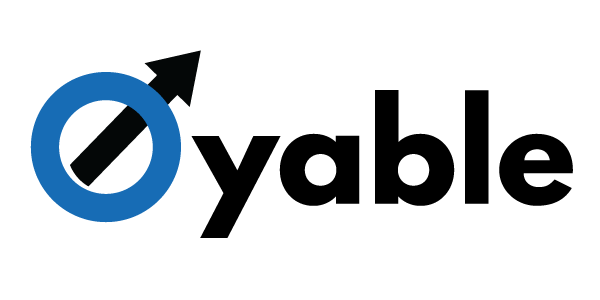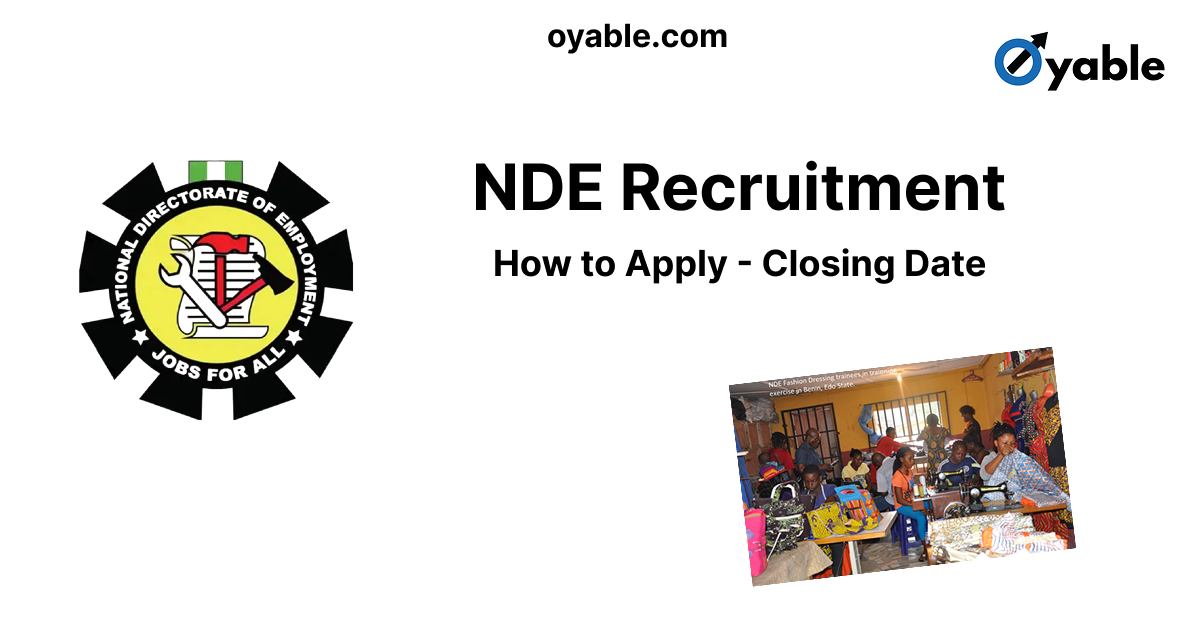The National Directorate of Employment (NDE) has launched the second phase of its flagship jobs and training program: the Renewed Hope Employment Initiative (RHEI). If you’re unemployed, underemployed, or simply looking to break into a skill-driven career path, this NDE recruitment opportunity is one you don’t want to miss.
Take advantage of fully funded training programmes, receive monthly support stipends, and access start-up support for selected trades in high-demand sectors. Applications are now open from July 28 to August 11, 2025, and unlike many government programs that move slowly, this one is already active and drawing in thousands of applicants.
Now lets break down everything you need to know about the NDE recruitment, how the RHEI works, and how to apply successfully without missing key details.
Why RHEI Phase 2 Is Different From Previous Government Programs
Most government employment schemes in Nigeria have been criticized for being certificate mills. Lots of theory, minimal practical application. The Renewed Hope Employment Initiative is looking to flip that script entirely.
This program was designed around one core principle: train people for jobs that actually exist. Instead of generic courses that lead nowhere, RHEI focuses on market-driven skills with clear income pathways.
Here’s what makes it stand out:
- Monthly stipends during training (not just promises)
- Start-up funding for graduates who complete certain programs
- Community-based approach that matches training to local economic opportunities
- Zero tuition fees with all materials provided
The first phase (RHEI 1) trained over 75,000 Nigerians across various skill areas, with documented success stories of participants launching profitable ventures within six months of completion.
NDE RHEI Training Pathways: Pick Wisely
When you apply for NDE RHEI recruitment, you’ll choose one of four specialized tracks. Your choice here determines everything. From training duration to potential earning outcomes.
1. Agricultural and Rural Employment Track
Perfect for anyone looking to tap into Nigeria’s agricultural potential. This isn’t subsistence farming training. It’s modern, profitable agriculture.
Key programs include:
- Fish farming (huge demand in Lagos, Rivers, Ogun states)
- Organic crop production with export market focus
- Livestock management (poultry, goat, rabbit farming)
- Modern farming techniques
Who should choose this: Rural residents, those with access to land, anyone interested in food production businesses.
Apply: NPHCDA Recruitment for LGA VAOs in Nigeria
2. Small Business and Entrepreneurship Development
This track is built for future business owners. Whether you have a business idea or you’re already running something small-scale, these programs focus on growth and survival.
Core modules:
- Start Your Own Business (SYOB) methodology
- Business plan development and pitch preparation
- Business financing and loan application processes
- Digital business tools for modern entrepreneurs
Best fit for: Market traders looking to scale, NYSC graduates with business ideas, informal sector workers ready to make their operations official.
3. Vocational and Digital Skills Training
The fastest path to immediate income generation. These are skills you can start making money from within weeks of completion.
High-demand courses:
- Digital marketing and social media management
- Fashion design and garment production
- Leather craft and accessories
- Tie and dye techniques and textile design
- Tech skills including basic web development
Target audience: Young people, school leavers, anyone looking for quick skill acquisition with immediate earning potential.
4. Public Works and Graduate Integration
Built specifically for degree holders and those interested in green economy jobs.
Program highlights:
- Graduate Internship Placement (GAP) in public and private sectors
- Solar installation and renewable energy systems
- Environmental restoration and landscaping projects
- Career coaching for professional development
Perfect for: Recent graduates, NYSC participants, professionals looking to transition into green energy sectors.
NDE RHEI Application Requirements: What You Need Before Starting
The application process is straightforward, but having everything ready beforehand saves time and reduces errors.
Must-have documents:
- Valid NIN (National Identification Number)
- Recent passport photograph (digital format)
- Active email address that you check regularly
- Working phone number for SMS notifications
Personal information required:
- Current address and local government area
- Educational background (certificates not required for most programs)
- Employment status and work history
- Preferred training location
Important note: There’s no application fee. Any website asking for payment is fake.
How to Apply for NDE Recruitment 2025
- Visit https://nderegistrationportal.ng/ and look for the RHEI Phase 2 application link. Bookmark this page. You might need to return if the server is busy.
- Enter your personal details carefully. Your NIN serves as your unique identifier, so double-check this number.
- This is the most important decision. Pick based on: Your current skills and interests, local market opportunities in your area, available time and resources, long-term career goals.
- Upload Required Documents. Your passport photo should be. Recent (taken within the last 3 months). Clear and professional-looking. Proper lighting and background. File size under 1MB.
- Review and Submit. Check every detail before submitting. Changes after submission may not be possible.
- Save Your Application ID. You’ll receive a confirmation number. Screenshot this and save the confirmation email. You’ll need both for status checks.
Pro Application Tips That Actually Work
- Apply during off-peak hours. The portal gets heavy traffic between 9 AM and 5 PM. Try early morning or late evening applications for faster loading.
- Choose your program strategically. Research which skills are in demand in your local area. Fish farming might be perfect in coastal states but less workable in northern regions.
- Use a professional email address. Avoid emails like “hotboy123@gmail.com.” Create something professional if needed. This affects how seriously your application is taken.
- Have backup internet access. Application deadlines don’t extend for connectivity issues. Use data backup if your WiFi fails.
- Double-check your phone number. SMS notifications are the primary communication method. A wrong number means missing important updates.
What Happens After the August 11 Deadline?
The NDE follows a structured timeline for processing applications:
Week 1-2 (August 12-25): Application review and initial screening Week 3-4 (August 26-September 8): Shortlisting by state and program September 9 onwards: SMS/email invitations for orientation and documentation
Selected candidates receive detailed instructions about:
- Training schedules and locations
- Required additional documentation
- Stipend payment processes
- Mentorship and support structures
Training typically begins within 30 days of shortlisting, with programs running for 3-6 months depending on the chosen track.
Beyond Training: The Complete RHEI Support System
What sets RHEI apart from other government skill programs is the complete support system:
During training:
- Monthly stipends to cover transportation and basic needs
- Free training materials and tools
- Experienced instructors with industry backgrounds
- Peer networking opportunities
Post-training support:
- Start-up grants for qualifying business ventures
- Mentorship programs connecting graduates with successful entrepreneurs
- Market connections for agricultural produce and crafts
- Access to microfinance through partner institutions
Long-term benefits:
- Alumni networks for ongoing collaboration
- Advanced training opportunities for skill upgrading
- Priority consideration for government contracts in relevant sectors
Common Application Mistakes to Avoid
- Mistake 1: Waiting until the last minute. Server overload on deadline day is almost guaranteed. Submit at least 48 hours before August 11.
- Mistake 2: Choosing programs based on trends.Pick skills that match your interests and local opportunities, not what seems popular online.
- Mistake 3: Providing wrong information NDE cross-checks applications with NIMC and other databases. False information leads to automatic disqualification.
- Mistake 4: Ignoring follow-up communications Check your email and phone regularly after applying. Missing an interview invitation means losing your spot.
- Mistake 5: Applying for multiple programs Unlike some schemes, RHEI allows only one program choice per applicant. Multiple applications cause disqualification.
Why This Opportunity Matters for Nigeria’s Economic Future
Nigeria’s unemployment rate among young people remains high, largely because educational institutions haven’t kept pace with market demands. RHEI represents a different approach. One that puts practical skills over theoretical knowledge.
The program aligns with Nigeria’s economic diversification goals, particularly in agriculture, manufacturing, and services. By training people in these sectors, RHEI contributes to reducing import dependence while creating sustainable local employment.
For individual participants, it’s a pathway to economic independence. For the country, it’s an investment in human capital that pays dividends through increased productivity and reduced unemployment.
Your Next Steps: Making the Most of This Opportunity
The NDE RHEI Phase 2 application window closes on August 11, 2025. If you’re serious about getting marketable skills and building a sustainable career, here’s what you should do immediately:
- Research your chosen track thoroughly – understand what skills you’ll gain and how they translate to income
- Gather all required documents – don’t let missing paperwork derail your application
- Apply early rather than waiting for the deadline rush
- Follow official NDE social media channels for updates and announcements
- Connect with RHEI Phase 1 alumni in your area to learn from their experiences
Remember, this isn’t just another government program. It’s a structured pathway to economic empowerment. The training is free, the support is complete, and the opportunities are real.
The question isn’t whether you can afford to apply. The question is whether you can afford not to.
Applications for NDE RHEI Phase 2 are open until August 11, 2025.


Leave a Reply